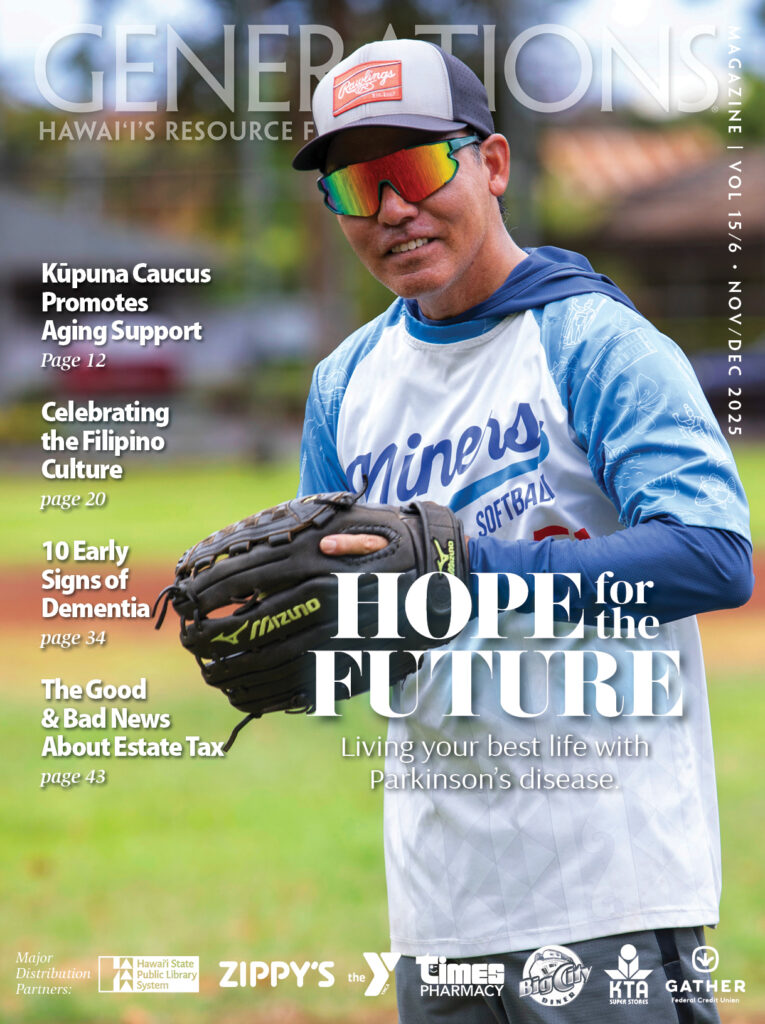 An interview with Denise Soderholm of Soderholm Mobility Inc.
An interview with Denise Soderholm of Soderholm Mobility Inc.
How has the transport business for seniors been affected by COVID-19?
Initially, I think the overall private transport business literally fell off a cliff in early March as tourism abruptly stopped and the State of Hawai‘i went into lockdown. The businesses in Hawai‘i quickly came together to provide solutions to safely transport our kūpuna. Fortunately, transport vehicles for retirement facilities and adult day programs have still operated. I was glad that was happening because transportation is vital for our seniors, even though they’ve cut back on traveling because of the lockdown mandates. But the necessary travels to the doctor are essential, as well as to the grocery store and pharmacy. Right now, a lot has fallen onto family for transportation — and that has caused an extra burden for them. However, there have been alternative solutions that businesses have adopted and included in their services, such as special senior and disabled shopping hours as well as store-to-door delivery so that the most vulnerable can still obtain their necessary medications or food.
During the state’s pandemic mandates, how have client services changed?
Well, the most obvious for businesses was to incorporate extra safety measures to keep staff, technicians and customers secure. Safety concerns for the more vulnerable and aged populations were paramount for everyone. COVID-19 just couldn’t take hold in those businesses. Many acquired new disinfectant products that are known to be effective for up to 30 days.
How are seniors faring with changing businesses and client services?
We’re in such a different time now. Everything around us just seems to be moving by so quickly. So I can only imagine how our seniors are viewing the world around them. I don’t expect them to keep up, but it just seems you almost have to, because technology is now playing a major part in our lives. Seniors must learn the devices we are using in our shifting business landscape.
Our business as well as many others are focusing on maintaining client communication via tablets, smartphones or what have you. FaceTime and Zoom are being widely used for one-on-one interaction and demonstrations with customers. Something that was once done in person is now an alternative norm — such as virtually examining new mobility equipment. Of course, the old phone call interaction is still always available. But definitely going virtual for businesses has dialed up the client services format.
YouTube videos are also another method businesses used as they began to think out of the box. Video demonstrations have been popular and businesses have incorporated those videos into their websites. And that’s where and how businesses are adjusting. Not only are clients able to get information about certain products, but transactions are done completely from their own home.
While online shopping may be popular, we need to recognize the importance of buying local. Warranty, service and repair for products purchased is best done on a local basis by a trusted provider. We want to recognize that as we all try to rebuild our local Hawai‘i economy.
For businesses in the senior industry, what has been the biggest challenge overall?
The biggest challenge in this COVID-19 environment was the initial shock and stress of how to do business with restrictions and constantly changing situations. Thinking out of the box was required. With that, new opportunities became available. In a way, there’s always a silver lining to every situation because it forces you to adapt and be flexible, and to change along with uncertain footing. You certainly remain light on your feet just so you’re always prepared.
In conjunction with the first question, I think the biggest challenge overall for seniors, still, is travel. Travel is such an integral part of our daily lives. We never thought twice about it before this pandemic. We’ve taken that and a lot of other things for granted; socialization stands out enormously. Seniors aren’t able to attend their daily social events, such as going to the park, a friend’s house, a senior club, etc. Travel is essential as they need to get from point A to point B.
Businesses in this industry must know the importance they play in this modality. They have stepped up and found creative ways to continue their business while keeping seniors mobile in a safe environment.
I have no doubt that the businesses that serve the disabled and aged communities in Hawai‘i will continue to evolve.
How do you think Generations Magazine has impacted our kūpuna community?
I would say Generations Magazine has made a great impact by providing a plethora of valuable information for our kūpuna and their related community. As an individual with mobility challenges, I started reading the magazine in the doctor’s office years before I dreamed of being close to the kūpuna target age group.
Generations Magazine contains so many resources and I learn something new with each issue. The Generations community of contributors is also one of compassion and understanding. To have a single, reliable source of ku¯ puna-related information is vital to our community.
We’re proud and honored to be a Generations Magazine partner!


Leave a Reply